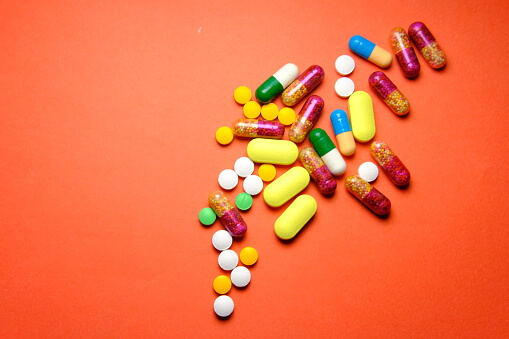Man Loses 28 Pounds From Vitamin D Intoxication. Be Proactive About Supplement Overdose

By Joy Stephenson-Laws, JD, Founder
Although supplementation should never be a substitute for nutrient-dense foods such as fruits and vegetables, many of us will usually have at least one nutrient deficiency or imbalance.
Why? Because our lifestyle may rob our bodies of valuable nutrients. For example, medications, alcohol, age and genetic issues are all factors which may affect our nutrient balance.
The good news is that this can usually easily be resolved by taking good quality supplements (not all are created equal) per the advice of a competent healthcare practitioner. A common problem with supplementation, however, is that because supplements are readily available to us at our local grocery stores, health shops and gyms, many people take matters into their own hands and supplement without any medical advice. This can lead to overdose.
Take, for example, the following story.
Recently, a man in the United Kingdom overdosed on vitamin D. According to one report, he had to be hospitalized because he ingested almost 400 times the recommended daily allowance (RDA). He had a very bad case of hypervitaminosis D (also called vitamin D intoxication).
According to the National Institutes of Health (NIH), RDA for vitamin D is between 400 and 800 IU per day (depending on age and pregnancy status). Some people may need higher doses, but most do not need more than 2,000 IU per day. The man in the story mentioned was ingesting 150,000 IU per day! To give you a bit more perspective on how much this is, one would only have to consume above 10,000 IU per day to reach a state of vitamin D intoxication.
Having a sufficient intake of vitamin D is important to our overall health and wellness. Very few foods naturally contain this nutrient. It is often called the ‘sunshine vitamin,’ because our bodies produce vitamin D when our skin is exposed to sunlight. Vitamin D is important to our overall health and wellbeing for a number of reasons:
- Bone health (this vitamin is needed for absorbing calcium)
- Muscle health (this nutrient helps our muscles move by encouraging nerves to carry messages between the brain and every body part)
- May aid in cancer prevention
- May raise stronger little girls
- May help protect vision
- May slow the progression of multiple sclerosis (MS)
- Prenatal care
Vitamin D has gained a lot of popularity over the last couple of years - thanks to medical studies which suggest that vitamin D may help protect against acute respiratory infections. But as with most things in life, too much of a good thing can be very dangerous (even deadly).

This man (who was said to be middle-aged) was actually taking a big cocktail of supplements. What is especially concerning to me is that, apparently, he took all of these supplements per the advice of a nutritional therapist. This is why you really have to make sure who you seek medical advice from is competent. I think asking your doctor is the best place to start. According to the report, he started experiencing symptoms one month after starting the supplements.
His symptoms included recurrent vomiting, nausea, leg cramps, tinnitus, abdominal pain, dry mouth, increased thirst and diarrhea. To make matters worse, three months of this went by before he received care at the hospital. Reportedly, he lost 28 pounds because he was vomiting so much.
“He was seeking out extra treatment after he'd previously suffered from multiple health issues including tuberculosis, a build-up of fluid on the brain, chronic sinusitis, bacterial meningitis, and an inner ear tumor,” according to the report.
In addition to taking well over the RDA of vitamin D, he was also taking an excess of other vitamins such as folate and omega-3. When he started experiencing symptoms he stopped taking the cocktail of supplements, but the symptoms continued because there was such a build-up in his system.
“Blood tests taken by the man's doctor revealed he had severely high levels of calcium, known as hypercalcemia – which is a common side effect of vitamin D overdose – slightly raised magnesium levels, and vitamin D levels seven times over the required amount,” according to the report.
“Tests also revealed that his kidneys weren't working properly (which isn't unexpected given the high concentrations of minerals and vitamins he was taking).”
Fortunately, after being treated with IV fluids and drugs to lower blood calcium levels, he recovered. But even two months after he left the hospital, his vitamin D levels were still high. This whole situation is very scary, because he could have really damaged his kidneys or had heart arrhythmias that could have led to heart failure or stroke.
Nutrient Balance is KeyI think one of the biggest takeaways from this story is that balance is key. The man experienced severely high levels of calcium, because he ingested very high levels of vitamin D (putting his heart health, kidney function, among many other things at risk). Never take more than the RDA unless a competent healthcare practitioner tells you to do so. As always, routine nutrient testing is important because it will usually determine the nutrient imbalances or deficiencies you may have. Once this is determined, you can work with your doctor to get on a safe supplement regimen.
Enjoy your healthy life!
The pH professional health care team includes recognized experts from a variety of health care and related disciplines, including physicians, attorneys, nutritionists, nurses and certified fitness instructors. This team also includes the members of the pH Medical Advisory Board, which constantly monitors all pH programs, products and services. To learn more about the pH Medical Advisory Board, click here.







